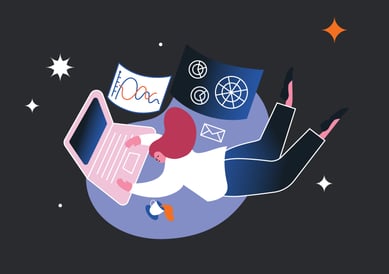

Tan Yen Yen
Director, School of Business


Calvin Yeo
Head of Commercial Real Estate


Alvin Goh
Executive Director


Terence Quek
CEO, Asia Pacific

How to develop high-performance work teams to thrive in a sustainable future
With the ongoing disruption, leaders and managers must make smart, timely decisions to keep the business on track and well-poised for the recovery stage.
This requires both an agile mindset as well as new leadership competencies. During the panel, Tan Yen Yen, Calvin Yeo, Alvin Goh and Terence Quek identified three key areas organisations should invest in to improve team performance for a sustainable future.
Remote work requires a great deal of self-motivation. With a sometimes excessive focus on doing things right instead of doing the right things, many leaders choose to focus on communicating the “how” of a new process, instead of spending time communicating the “why”. Leaders should always err on the side of over-communicating purpose, especially when people are working remotely.
Organisations should also provide a clear direction and framework to help leaders and remote employees to achieve goals. By setting clear and achievable milestones, such as deadlines or targets, leaders will give remote staff the information they need to manage their performance effectively. Transparency, communication and clear direction will link everybody and create the best environment to thrive.
Leaders and managers need to evolve their leadership styles - with more understanding, tolerance and flexibility for a more human-centric approach. Empathy and understanding are the cornerstones of positive workplace culture. Demonstrating an understanding of the experiences of your team members is a great way to foster a sense of belonging and team spirit, even in a remote working situation.
EngageRocket research reveals that manager support has a “high” to “very high” impact on employee loyalty, particularly through clear and regular feedback. Company-specific assessment and employee feedback collection can pinpoint which managers and which business units would require immediate action.
In a socially distant world, many managers lack the time and tools they need to identify flight risk, burnout or disengagement. HR and leaders need to help them encourage dialogue and feedback to understand how their team feels and track progress. They also need to be equipped with action plans to put employee feedback into action.
Simple things such as soft skills training can help employees communicate better with their teams and strengthen essential bonds. Thirty-six per cent of employees report communication among team members as a real challenge during the Circuit Breaker.
Performance evaluation could be a major challenge, as thousands of employees come back to the office after a prolonged period of remote work. This means that remote productivity measurement tools must be in place so that evaluations and appraisal cycles due for year-end go on without a hitch.
COVID-19 has highlighted what “performance” really looks like, beyond legacy indicators like formal education or the hours you put in. Grounded industry understanding, demonstrated skills, and peer perceptions contribute more to one’s ability to take on leadership roles. Performance and talent management systems must change to reflect the new reality.
However, it is clear that to unleash the full potential of our talent today; we need to understand and acknowledge what each person wants to get out of their job and match these aspirations with the organisation’s goals.
This includes collecting data from the employee, their peers, and managers, recording key productivity parameters, and – most importantly – facilitating continuous conversations with team leaders so that a worker’s full potential can be unleashed.
Having multiple sources of data will support a more balanced performance review process. Some other key metrics that are now relevant include behavioural competencies, collaboration, accountability, ownership and responsibility.
The ultimate goal is to pivot the entire organisation to a growth mindset, focusing on the long term vision.

 .
. 
Copyright © 2025 EngageRocket Pte Ltd. All rights reserved unless otherwise stated.